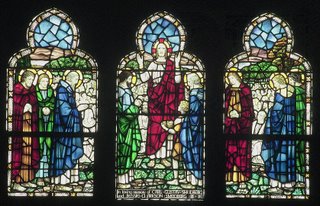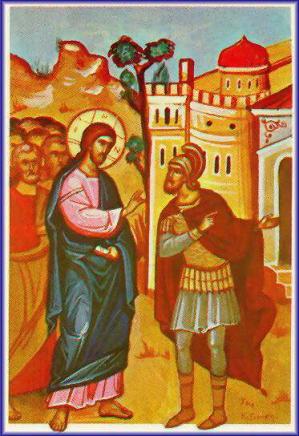Faithfulness, piety, moral resolve, doctrinal clarity, discernment of persons and situations, indifference to criticism, compassion (especially to the downtrodden)—these are just a few of the qualities denoting a good pastor. And to be resisted, among other things, are pride and ambition, temptations of the flesh, apathy and despondency, and anxiety about personal cares. But more than all these snares is one that subtlety yet perniciously erodes even the most resolute man; namely, the loss of awe.
Akin to, yet quite unlike apathy or accidie (from
acedia), loss of awe urges a priest to forget that he is not performing a common ritual when he celebrates Divine Liturgy, administers the sacraments, gives a blessing, proclaims the Word, or even says the prayers. Rather, he stands at the juncture of heaven and earth and, as one of God’s ministers, handles those sacred materials and words that cause angels to sing, devils to quake, saints to become ecstatic, and mortals to mutely prostrate.
And it is not just celebrants who are in danger of becoming inured to holy mysteries that give and sustain our life in God. Priests must also be on guard to watch for the same temptation in their parishioners, especially the most faithful. For they too come near—not as near as we, but near enough and often enough that they may lose sight of the heavenly realities that make for their peace.
Loss of awe is most insidious because we priests (most especially) can quickly be blinded to the reality that occurs when the holy mysteries are celebrated; and we can be so easily tempted to see the common as ordinary, and to become unmoved by the familiar.
St. John Chrysostom hints at the problem of the loss of awe when he tells the story of the venerable old man accustomed to see visions. While the priest ministered at the altar, this man saw angels encircling, bowing their heads. Yet saintly vision-prone men need not be the only evidence. Priests see it in eyes of the dying who contentedly smile when the pastor speaks and gives the familiar mysteries. They hear it from the mouths of infants or those with dementia who call us “
Jesus” or “God.” They see it in the shoulders of the penitents or grieved as the Gospel is proclaimed so that the weight is visibly lifted. And they hear it in the respectful tones used even by the most hard-hearted when they approach or are grateful for godly compassion.
Like the jeweler who deals daily in priceless gems, like the bank teller who unthinkingly thumbs through thousands upon thousands of dollars each week, precisely because they stand at the altar nearest the Holy Trinity as He doles out His greatest gifts, celebrants can easily suffer the loss of awe. And when that happens, it is only a short step until ministering becomes another helping profession, and the accent lands on “care” rather than “pastoral.” And then comes pride, greed, lust, ambition and the other soul-destroying temptations; and then faithfulness, piety, resolve, and compassion become rote rather than prayer-filled.
What I am suggesting, then, are three things. First, that the loss of awe is the gate to the temptations that beset and afflict priests of God more fiercely than other men. Second, that the positive qualities that every priest must have, in the end, do him no good if he cannot see the fullness and the heavenly reality of all that he ministers in the Lord’s name. And thirdly, I am suggesting that what informs the work of a pastor is not merely a seriousness or deep-seated respect for the Lord’s work, but a holy and fearsome awe in mediating the Lord’s life-giving mysteries to the faithful.
This awe, I suggest, is what caused St John Chrysostom—and many others before and after him—to proclaim his unworthiness; and what make St Gregory the Theologian run time and again to the hills; and what weighed heavily on St. Gregory the Great; and what caused numerous faithful clergy to risk their lives—even their health—in preparation for and in carrying out their office.
Yet it was also this holy awe—and the desire to stand everlastingly within it—that also gives bishops and priests the fearless calm resolve to come out of their hiding places, not to waver in both truth-speaking and truth-giving, and to leave us such inspirational examples in the texts which their lives write.
A personal reflection based on reading St John Chrysostom's "Six Books on the Priesthood," St Gregory of Nazianzen's "Flight to Pontus," St Gregory the Great's "Pastoral Rule," and the summary of these three by Andrew Purves in "Pastoral Theology in the Classical Tradition."
 Dn Leonard Klein's statement, which I quoted below, together with the ensuing comments to my post--particularly those which rightly see that the key issue is ecclesiology--have brought to mind this statement from a presentation given in November 2004 by Walter Cardinal Kasper:
Dn Leonard Klein's statement, which I quoted below, together with the ensuing comments to my post--particularly those which rightly see that the key issue is ecclesiology--have brought to mind this statement from a presentation given in November 2004 by Walter Cardinal Kasper:
























